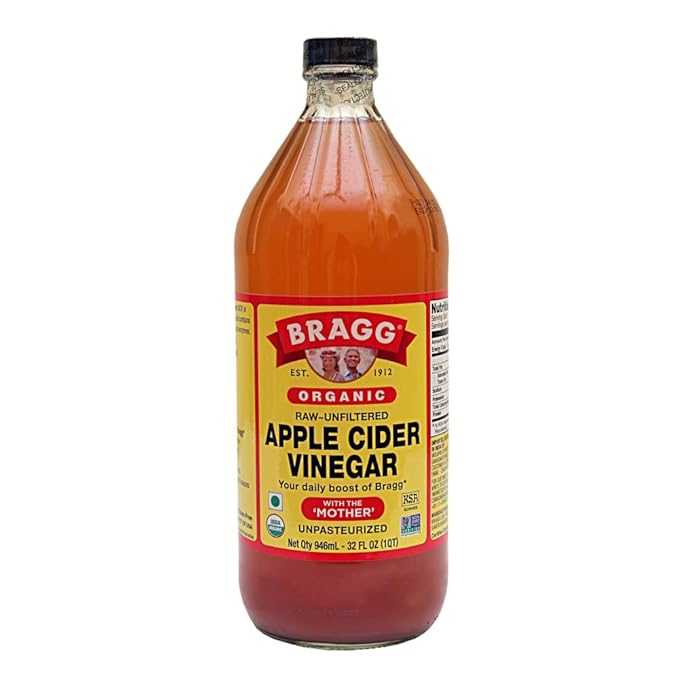🏺 Historical Drinks for Hydration
💡 Ancestral Wisdom: In nature, “pure water” does not exist; therefore, many cultures added mild acids, salts, natural sugars, grains, or diluted dairy to make water safer, more palatable, and more useful for hydration.
🍋 I. Water with Vinegar (Simple Acidulation)
1️⃣ Posca
🏛️ Origin:
Rome (soldiers and lower classes)
📅 Period:
1st century BCE–4th century CE
🥄 Ingredients:
Water, wine vinegar, pinch of salt or herbs (optional)
✅ Acidifies and masks water flavors; today, 1 L water + 1–2 tablespoons vinegar, adjust minimal salt.
2️⃣ Oxymel
🏛️ Origin:
Greco-Roman world and medieval medicine
📅 Period:
Late Antiquity–Middle Ages
🥄 Ingredients:
Water, vinegar, honey
✅ Combines acid and glucose, promotes intake; today, 250–300 ml water + 1–2 teaspoons honey + 1 teaspoon vinegar.
3️⃣ Sekanjabīn (Sekanjabin)
🏛️ Origin:
Persia/Iran
📅 Period:
≥ 10th century
🥄 Ingredients:
Water, vinegar, honey or sugar, mint (optional)
✅ Refreshing in hot weather; today, light syrup and 1–2 teaspoons per glass with mint.
4️⃣ Switchel (Haymaker’s Punch)
🏛️ Origin:
Rural North America
📅 Period:
18th–19th centuries
🥄 Ingredients:
Water, vinegar, molasses or honey, ginger
✅ Provides light sugars and electrolytes; today, 1 L water + 2 tablespoons vinegar + 1–2 tablespoons molasses + ginger.
💡 General Tip
Use mild vinegar (apple or wine), minimal salt if sweating, and moderate sweetener only for palatability. Chill well.🍊 II. Water with Acidic Fruits (Citrus and Other Fruits)
5️⃣ Nimbu Pani / Shikanji
🏛️ Origin:
India
📅 Period:
Premodern tradition to present
🥄 Ingredients:
Water, lemon/lime juice, pinch of salt (ideally black salt), little sugar and cumin (optional)
✅ Citric acid + sodium; today, per glass 200–250 ml water + 1–2 teaspoons juice + pinch of salt.
6️⃣ Tamarind Sharbat
🏛️ Origin:
India and adjacent regions
📅 Period:
Medieval–present
🥄 Ingredients:
Water, tamarind pulp, salt, cumin, sugar/jaggery (optional)
✅ Very refreshing; today, soak/strain pulp and add minimal salt.
7️⃣ Karkadé (Hibiscus)
🏛️ Origin:
Egypt/Sudan
📅 Period:
Ancient–present
🥄 Ingredients:
Water, hibiscus calyces, sweetener (optional)
✅ Tart, encourages intake; today, brief infusion or cold steep and serve cold.
8️⃣ Aguapanela with Lemon
🏛️ Origin:
Andes (Colombia and region)
📅 Period:
Colonial–present
🥄 Ingredients:
Water, panela (whole cane sugar), lemon juice
✅ Tasty water with glucose and citric acid; today, dissolve panela warm, chill, and add lemon.
💡 General Tip
Prioritize mild acids (lemon, tamarind, hibiscus) and a pinch of salt in heat. Keep sugars low and use previously boiled or safe water.🌿 III. Water with Herbs and Spices
9️⃣ Jaljeera
🏛️ Origin:
North India
📅 Period:
Ancient tradition
🥄 Ingredients:
Water, cumin, mint, ginger, black salt, lemon (optional)
✅ Provides sodium and freshness; today, ground spices in cold water and adjusted salt.
🔟 Jeera Pani (Cumin Water)
🏛️ Origin:
India
📅 Period:
Ancient household tradition
🥄 Ingredients:
Water, toasted and ground cumin, pinch of salt (optional)
✅ Flavor that encourages drinking; today, 250 ml water + ¼ teaspoon cumin; salt if sweating heavily.
1️⃣1️⃣ Fennel Water
🏛️ Origin:
Mediterranean and South Asia
📅 Period:
Premodern–present
🥄 Ingredients:
Water, fennel seeds (lightly crushed), mint (optional)
✅ Palatable and digestive; today, macerate 10–15 min and chill.
💡 General Tip
Use brief cold macerations or short infusions; if it’s hot/sweating, add a pinch of salt. Strain for better texture.🌾 IV. Water with Grains and Legumes
1️⃣2️⃣ Ptisane (Greek Barley Water)
🏛️ Origin:
Classical Greece
📅 Period:
≥ 5th century BCE
🥄 Ingredients:
Water, pearl barley, honey or lemon (optional)
✅ Gentle, sustained hydration; today, decoction 45–60 min, strain, and serve cold.
1️⃣3️⃣ Barley Water (Hispanic Tradition)
🏛️ Origin:
Spain/Hispanic America
📅 Period:
Ancient roots; popular 19th–20th c.
🥄 Ingredients:
Water, cooked barley, sugar/honey, lemon/cinnamon (optional)
✅ Low cost and very drinkable; today, light decoction and very cold.
1️⃣4️⃣ Sattu Sharbat
🏛️ Origin:
India (Bihar)
📅 Period:
Premodern–present
🥄 Ingredients:
Water, roasted chickpea flour, salt, lemon, herbs (optional)
✅ Sodium + carbohydrates; today, 1–2 teaspoons per glass and a pinch of salt.
1️⃣5️⃣ Rice Water
🏛️ Origin:
Asia (widespread household use)
📅 Period:
Premodern–present
🥄 Ingredients:
Water, rice, minimal salt (optional)
✅ Very gentle; today, boil 10–15 min, strain, and add salt if sweating.
💡 General Tip
Prefer clear, strained decoctions. Refrigerate and consume the same day. Add minimal salt in hot climates or physical work.🥛 V. Water with Diluted Dairy and Salt
1️⃣6️⃣ Ayran
🏛️ Origin:
Anatolia and the Balkans
📅 Period:
Ancient/medieval–present
🥄 Ingredients:
Cold water, plain yogurt, salt
✅ Fluid replacement with electrolytes; today, 200 ml water + 100 ml yogurt + 1/8 teaspoon salt.
1️⃣7️⃣ Doogh
🏛️ Origin:
Persia/Iran
📅 Period:
Ancient/medieval–present
🥄 Ingredients:
Water, yogurt or whey, salt, mint (optional)
✅ Hydrating and digestive; today, ayran proportions with dried mint.
1️⃣8️⃣ Chaas (Savory Buttermilk)
🏛️ Origin:
India
📅 Period:
Premodern–present
🥄 Ingredients:
Water; whey/whisked yogurt; salt; (opt.) cumin, ginger
✅ Ideal after intense heat; today, 1 part yogurt to 1–2 parts water and salt to taste.
💡 General Tip
Use plain, unsweetened yogurt; dilute with cold water and season with minimal salt. Keep the cold chain and consume the same day.
🍇 VI. Simple Waters with Dried Fruit
1️⃣9️⃣ Date Nabīdh (non-fermented)
🏛️ Origin:
Arabia / Early Islam
📅 Period:
6th–7th centuries onward
🥄 Ingredients:
Water; dates or raisins (brief soak)
✅ Palatable water with natural sugars; today, soak 8–12 h cold, strain, and consume the same day (without fermenting).
💡 General Tip
Soak cold and do not let ferment; strain well and refrigerate. Discard if bubbles or a strong sour smell appear.
📏 Quick rules for household use
In heat or sweating
Prioritize recipes that include a pinch of salt.
Sugar
Use only the minimum needed to make it appealing to drink.
Hygiene
Always start with safe water (boiled, filtered, or treated).
Cold
Almost all improve when served very cold.
Recommended Products
PrepperFamily.org participates in the Amazon Affiliates Program. Using these links contributes to the platform at no extra cost to you. Thank you for supporting this community!
Sources
- Hippocrates, Regimen in Acute Diseases (Loeb Classical Library).
- Darani, N. S., et al. “Oxymel: A systematic review of preclinical and clinical studies.” Frontiers in Pharmacology, 2023.
- Smithsonian Magazine. “Switchel: Drinking Vinegar to Stay Cool.” 2010.
- Mohamadi, S., et al. “Microbial and Chemical Characteristics of Doogh (Iranian Fermented Yogurt Drink).” Frontiers in Microbiology, 2021.
- Vindolanda Trust. “Roman Food and Drink – Part 3: What were they drinking?” 2021.
Support this project without spending more
Your usual purchase can make the difference
1
Enter Amazon through any of our links
Secure affiliate links.
For example: Gentian Violet 1%
View on Amazon
2
If you do not want the recommended product, simply search for what you really need
Choose any product and shop as usual.
3
That’s it! It’s that simple.
With your purchase, Amazon sends a small commission to PrepperFamily.org for qualifying purchases.










